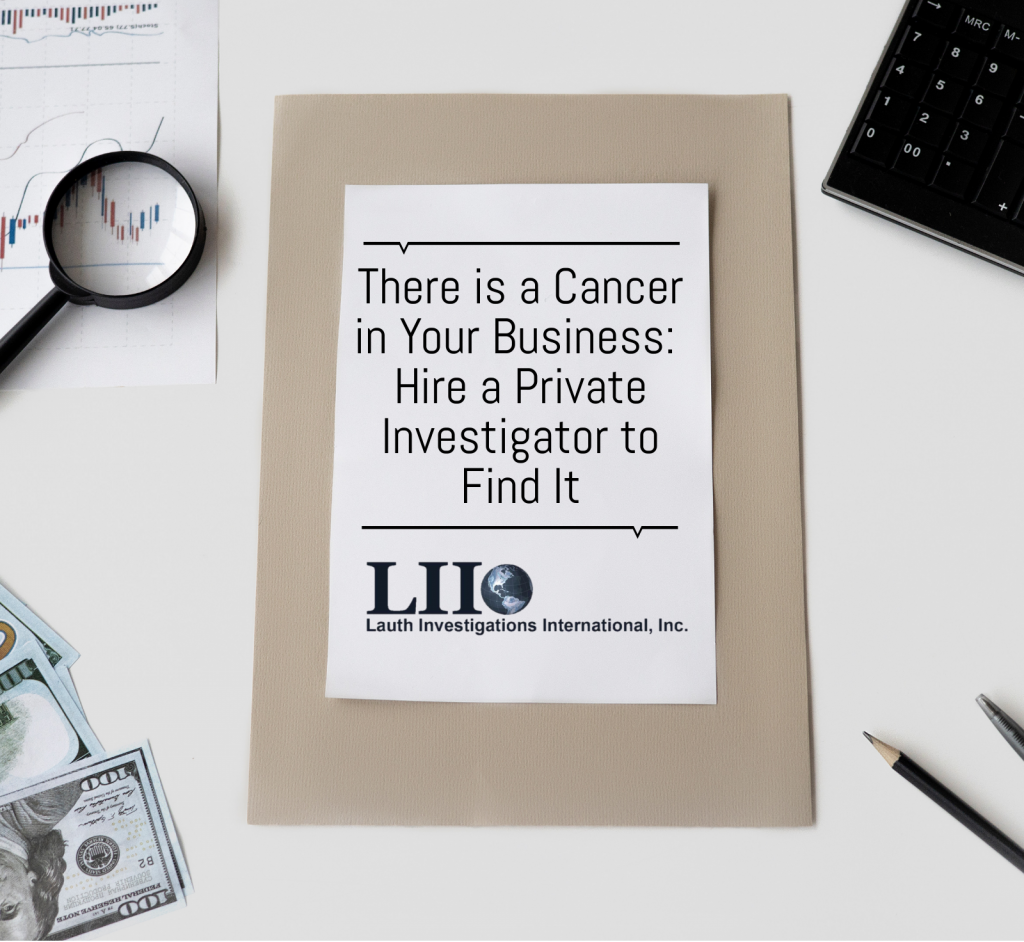Hiring A Workplace Investigator: Don’t Let Discrimination Derail Your Business

The tricky thing about discrimination in the workplace is that damaging shots can be firing in all directions long before they appear on leadership’s radar. What begins as a veiled microaggression here and there can quickly escalate when a perpetrator feels emboldened. On the other side of the equation, when an employee finds themselves a […]
There is a Cancer in Your Business—Hire a Private Investigator to Find It

As never before, today’s consumers expect the brands they buy into to lead by example when it comes to equality and social justice. Any organization that allows workplace discrimination to run rampant is not only going to face the potential of legal repercussions, but also substantial reputational damage that is hard to bounce back from. […]